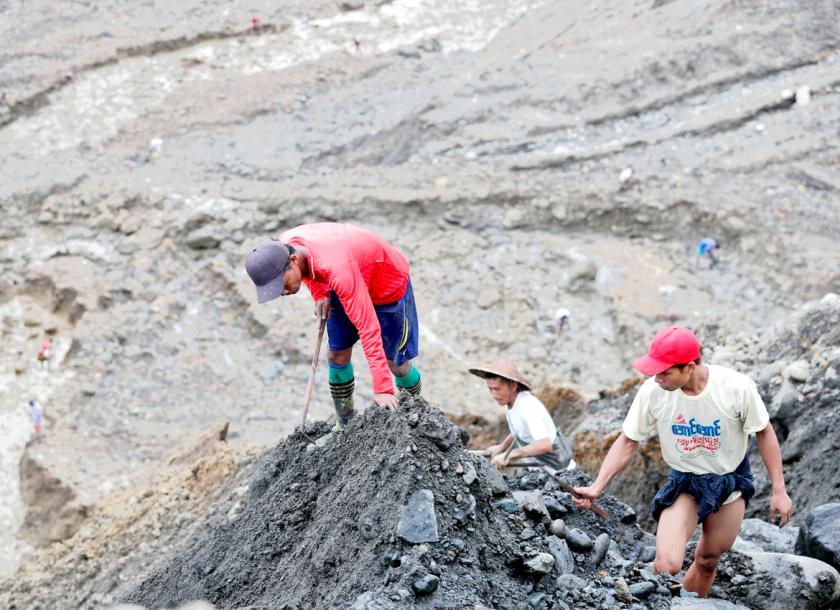
Myanmar needs to improve civil society participation and transparency in state firms despite good progress in data disclosure over the next 18 months, said the Extractives Industry Transparency Initiative (EITI) this week upon the validation of Myanmar.
The EITI board, convening in Addis Ababa, Ethiopia, commended the “meaningful progress” Myanmar has secured in “introducing policy reforms, improving transparency in extractives data, stimulating robust public debate and creating a platform for dialogue among stakeholders.”
It urged the country to improve public disclosures, particularly related to licence allocation, gemstone production data and state-owned enterprises (SOEs).
A UN Fact-Finding Mission report released in August characterised state firms such as Myanmar Oil and Gas Enterprise, the three Myanmar Mining Enterprises, Myanmar Gems Enterprise and Myanmar Timber Enterprise as having “largely opaque” finances. The Myanmar government rejected the report findings.
With the SOEs generating more than half of the government’s revenue, governance experts say more oversight and transparency are necessary to ensure greater accountability.
“The Board emphasises the need for Myanmar to ensure that the status of military-affiliated extractive companies is clarified,” said the EITI board in a statement.
The EITI, which Myanmar joined as a candidate country in July 2014, sets an international standard for governments to disclose their revenues from oil, gas and mineral extraction.
“The [Myanmar] government’s 12-point economic policy emphasises the strategic role of the EITI in the reform process, specifically in natural resource governance. The government’s intention to ensure sound governance of its natural resource sector is signalled in this policy framework and in a reform agenda that puts emphasis on transparency,” commented EITI chair Helen Clark. “Myanmar is a unique example of a formerly opaque regime opening its doors and committing to greater transparency.”
The conclusion drawn by the EITI Board came after Myanmar’s first validation process that commenced July last year. Myanmar had until April 2021 to carry out corrective actions relating to industry and civil society engagement, licence allocations and register and SOE transactions, among other areas.
Meanwhile, the EITI Secretariat’s assessment has raised concerns over freedom of expression and freedom of association. Civil society’s ability to speak about contentious issues related to EITI implementation has been limited due to threats and fear of reprisal.
“There is evidence that there are constraints to civil society’s freedom to associate with other members within their constituency in subnational regions that are resource-rich and where issues in the extractive sector are contentious and dominated by ethnic armed organisations,” warned the Secretariat.
A second validation is scheduled to take place in 2021. Failure to meet the requirements then will result in Myanmar’s suspension.
